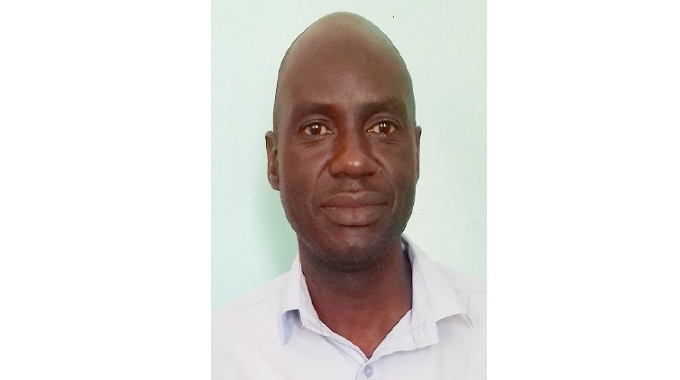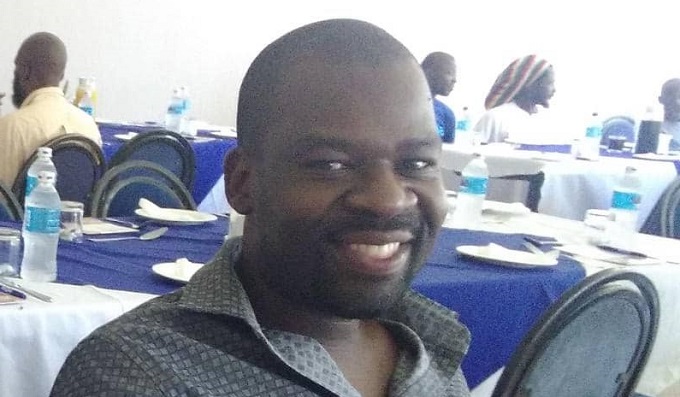Depression doesn’t affect black people, says who?

Raymond Jaravaza and Mthabisi Tshuma, Showbiz Correspondents
IF he got paid a dollar every time he heard the statement “depression doesn’t affect Black people, it’s a White folks condition”, Ingutsheni Central Hospital clinical director Dr Wellington Ranga would be a wealthy man.
For a man who has been at the helm of the country’s biggest mental health referral institution, Ranga’s heart bleeds when the same statement is repeated over and over again simply because people choose to stay ignorant about depression and its effects on society.
This article was spurred by a Facebook post by renowned comedian Carl Joshua Ncube who publicly announced to his fans, his decision to separate with his wife of close to 10 years, Nelsy Ncube due to depression.
In his post, Carl who has been unwell and battling with diabetes for a while said due to depression and deteriorating health, he has not been getting along with Nelsy. He says he asked for a divorce, a drastic measure some may say.
Carl and Ranga – the medical doctor are two worlds apart – one being a comedian and entertainer while the other studied the human mind and behaviour, yet the two agree on one thing. Depression is real.
“Let me be very clear, depression is real. It’s a condition that affects both men and women and it’s high time society accepted that depression is a condition that can affect anyone. Statistically, women are prone to depression than men, but I get worried when people label depression as a ‘white people’s condition’.
“Men and women react to depression in different ways, in what we call compensatory mechanisms. For instance, men will drink alcohol or take drugs, for what I would say for the lack of a better term, running away from stress or depression, while women may lose appetite and so forth,” said Ranga.
How prone is someone depressed likely to commit suicide?
“I’m sure you have heard the conversation where men ask each other what one would do if they found their wife in bed with another man. The most common response is that the man will either kill the wife or commit suicide and I always use that example to differentiate between depression and suicide.
“Depression doesn’t necessarily lead to suicide. Someone could be very content with their life right now, go home the next minute and find his wife with another man in bed then commit suicide. It’s what we call impulsivity – doing something in the heat of the moment and having a sense of hopelessness.
“Hopeless is when someone thinks it’s the end of the road and there is no way of going back. Those are the two drivers of suicide and depression is not necessarily a factor that can lead to suicide.
“The problem is society looks at suicide and depression at a textbook level yet the two are very complex subjects,” said Ranga.
Opening up on depression is one of the hardest things that many people fail to do.
African Institute for Ending Bullying, Depression and Suicide (Afribis) executive director Zenani Masuku said there are different types of depression.
“We have natural depression and clinical depression. Natural depression is the natural reaction to certain things that can make you sad for a short period of time.
“Clinical depression is when one is chronically depressed to a point that they need medication and therapy to get better,” said Masuku.
Masuku says there are various reasons that can trigger depression.
“One of them is genetic. Genetical depression can be caused by a traumatising situation that changes one’s life. Mental health is simply the ability to do your day-to-day duties, to be productive without being disturbed by how you feel, think or your emotions.
“With depression, people are affected by how they feel and think so it’s a chronic state that is felt for a long time,” said Masuku.
She added that people’s minds are different as individuals react to different situations in different ways.
“What people should know is that people are different. Someone can lose both parents in an accident and be depressed for a short time and someone else can lose a loved one and be depressed for a very long time. In some instances, someone can be seriously depressed after losing a laptop or even a cellphone,” said Masuku.
According to Masuku people can deal with depression through medication and therapy.
As of yesterday, when Saturday Leisure walked into Ranga’s office for an interview, 614 in-patients were housed at Ingutsheni Central Hospital for various degreed levels of mental conditions ranging from depression to outright mental illness. 431 of those patients are men and 183 are women.
It’s a trend that Ranga has known all too well for the last 20 years.

Dr Wellington Ranga
Depression doesn’t affect black people, says who?
The trend begs the question why society believes that men are less prone to getting depressed compared to women.
“Again, let me emphasise that depression and mental illness are totally two different conditions, but at the same time, the figures that I have shown you demonstrate that men must start talking issues related to mental health very seriously. Numbers don’t lie and we see that at Ingutsheni Hospital every day,” he said.
Can kids be affected by depression?
“To answer that question, let me take you back to the time when we seriously started talking about depression and called the condition ‘affective disorders’. The general consensus was that the condition has an age cap of around 18 years and above.
“But what doctors agree on now is that the age cap has been going down, we now have a term called ‘childhood depression’ because we are noticing that there is a form of depression that affects children.
“Now you find a primary school kid getting depressed. One needs to have what we call cognitive ability to reason that something is wrong to get depressed so I would say depression affects everyone across the board from kids right up to old people,” he said.











Comments